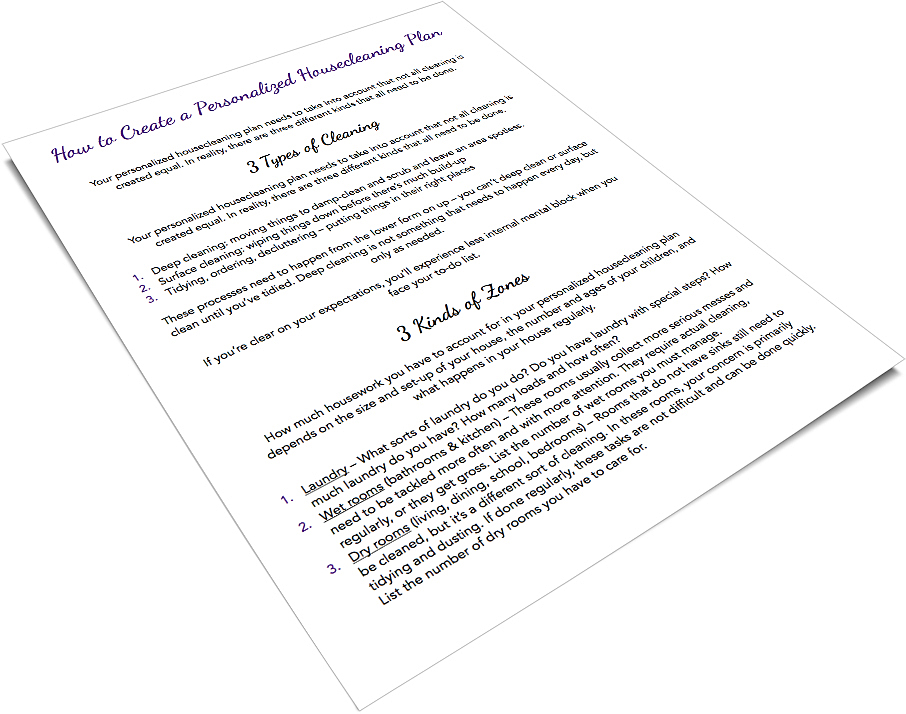Pull out the glasses, set the table, time to get ready for company.
Ever noticed that funny feeling where you turn on a different persona, a different ability to handle life, at least momentarily, when you open the door or answer the phone?
It shows us our actual ability to exhibit self-control.
Too often, our tone and tactics with our kids do not.
When we jump on them, pester and harp, then switch it off immediately if someone walks in the door, we’ve got a clue – there’s a problem.
#083: Homemaking requires hospitality.
The fact that we can exercise self-control when we’re sufficiently motivated can at least give us hope. It shows it’s possible. We simply need to take that start and extend it farther.
What are some things that we do for guests that can inform how we treat family? How can we, as homemakers, make our homes welcoming for those that live here? After all, isn’t that the point of homemaking?
Manners are love in trifles, love in the small things. What small ways can we make our love seen and felt throughout mundane days? Hospitality gives us clues.
Have beverages available.
As I wrote in “How to have people over without losing your cool,” if we have a habitual “first thing” we do when someone comes in it helps both host and guest feel more at ease. In our house, that’s offer a beverage.
When a little one stubs a toe, needs a hug, or is otherwise emotionally fraught, in addition to the hug, what about offering a drink of water? It’s a simple thing, but it says, “I care. I’m thinking of your needs.” Add an ice cube or a few drops of lemon juice and suddenly it’s special, too.
When a big one comes in sweaty, is there ice he can use as he gets himself water? When a big one comes down groggy in the morning, can he make himself tea? These are things that help him feel comforted at home, like home is his home and not just his mother’s home. Maybe he needs a tall glass of ice water set at his side when he furrows his brow at his math page.
Plus, drinking water really does help you feel better.
Don’t clean out from under people.
Have you ever had a waitress at a restaurant hovering, ready to pounce on your plate if you give the least indication that you’re done? It’s obnoxious, and it makes you feel like she’d prefer you leave ASAP.
You probably leave a lesser tip, gripe a bit, and get out of her way. No one wants to stay where they feel unwelcomed and unwanted.
Yet how often are we that pouncy waitress? Tapping our toes, waiting for people to be done so we can clear their stuff. Clearing glasses left out because we want our counters clear, we then grouch at the number of glasses used per day (or is that just me?).
Solution: Give those glasses-in-use a home. Let them live there. Move cups to that spot instead of into the dishwasher – without griping.
What about the game-in-progress, the LEGO city, the doll orphanage, the craft area nightmare, the block city complete with transatlantic railroad? As soon as we see it abandoned for a minute, do we pounce? Are we preempting play and communicating that we wish they just wouldn’t in our haste to have them tidy it all up?
Solution: Afternoon EHAP. Everything has a place, but maybe it doesn’t have to be in its place until its appointed time. The toys’ home might be in use in the living room. Let them be, live around it, until EHAP rolls along. There is a time for playing and a time for tidying, and once that becomes a habit neither party, mom nor children, needs to play the tug-of-war game about whose vision of the living room gets to survive.
Providing what is needed, when it is needed.
Now, actually, cleaning up too quickly and too soon is rarely my temptation. Rather, I tend to let things slide until the problem cannot be ignored.
I remember once hearing a marriage speaker remind husbands to be grateful to their wives and appreciate that clean socks and underwear “magically” appear in drawers week after week.
“Huh,” I thought, “socks and underwear in drawers, eh?” My husband has been known to – without complaint – start a load of laundry himself because he was on his last sock. Nothing magical was happening in our laundry process. Dirty clothes were in the hamper (usually) and clean clothes in the laundry baskets (usually). Too often the load of laundry I started was not part of a routine, but a response to a crisis moment: “Mom! I have no ______ !”
Whether it’s a square meal or clean laundry or floors that don’t make black feet, we are offering service and provision to our family members.
We’re not cleaning to keep up our vision of our house. We’re not ignoring our work for our own convenience. We’re taking care of people’s real, physical needs, whatever the chore at hand.
Switch on the smile when you make eye contact.
But more important than beverages or patience or diligence is switching on the smile for our own family members.
When our demeanor changes as we answer the phone or the door, we need to repent. It’s a sure sign that we’re allowing selfishness and irritation into our home relationships while clearly being able to change our disposition for others.
Who is more important to us? Our family or our guests?
Should we not also take the effort, the energy, the self-discipline to love with our eyes, our mouths, our expressions, our tones for those within our house? Think about that switch that comes on when answering the phone and pray for the strength to flip that switch for the sake of each person within your home.


One Comment